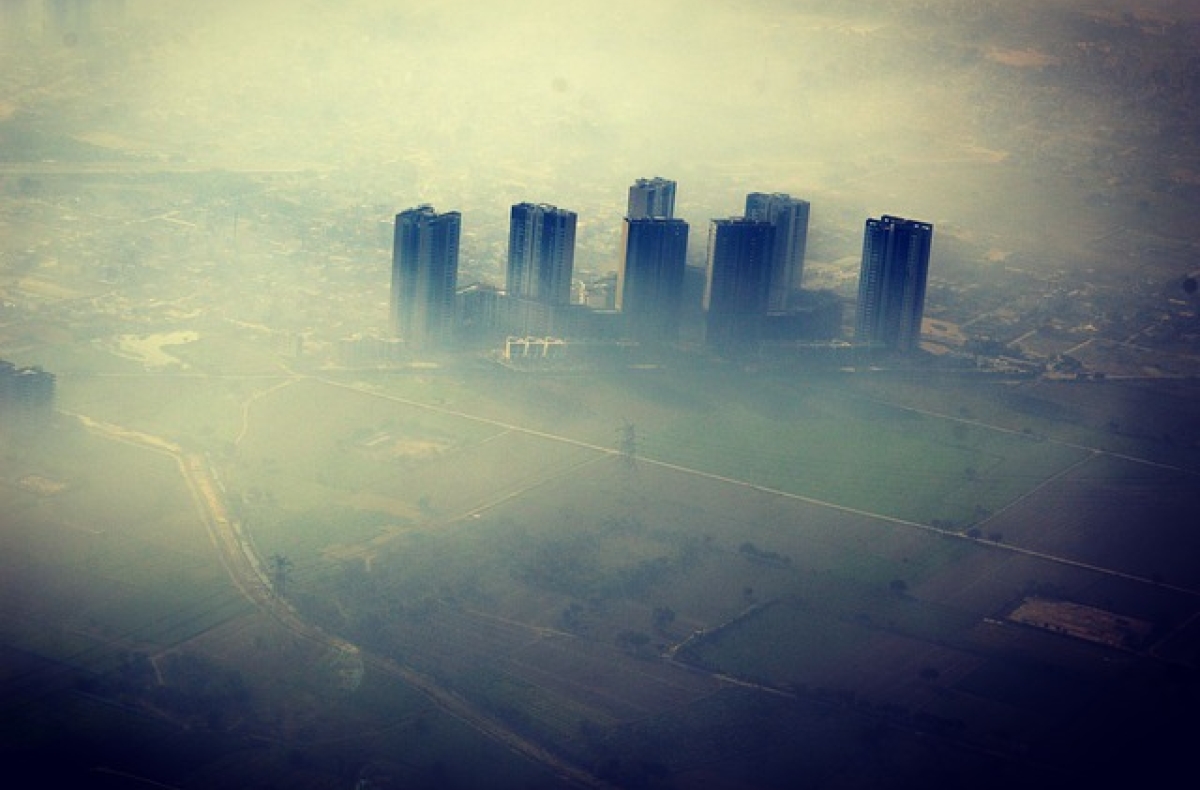The Woods Institute is now part of the Stanford Doerr School of Sustainability
Environmental Rehabilitation and a Global Pandemic

Image by: alvpics/Pixabay
The world has been suffering at the hands of COVID19. While the pandemic has had a devastating effect on national economies, supply chains, essential commodities, public health services, and various other fields, the travel bans, shut international borders, restricted imports and various other government decisions pivoting on a global lockdown have improved the Air Quality Indices around the globe. This phenomenon thus begs the question: What can be the takeaways from one fight – against the pandemic – to aid in the fight against environmental pollution.
While air pollution generally is looked at as a function of industrial and vehicular pollution, there are four main types of air pollution sources: natural sources –(such as volcanoes, cyclones, wildfires); stationary sources – (such as industrial and manufacturing); mobile sources (transportation) and area sources – (agricultural areas, cities). Out of these four major sources, the latter three have almost been brought to a standstill. The effect of this has been visible to all and sundry. The Air Quality Index (AQI) of Anand Vihar Region of Delhi, NCR - infamous for being the one of the most polluted regions in the capital - due to the plethora of industries in its vicinity, showed a stark improvement in the various pollutant specific indices and a drop from a ‘severe’ AQI of 447 to a satisfactory AQI of 80 since November, 2019.
The resultant effect of the lockdowns on the cumulative air quality, like in Anand Vihar, has been observed all across the country and the globe. The natural question then is: why have the governments not been able to enforce such environmental measures proactively and, instead, the same have been a by-product of managing a pandemic? The most prominent response would be to curb the fatalities that are occurring (and increasing) on a daily basis owing to the pandemic and thus the need for such drastic measures.
However, according to a report of the World Health Organization, the combined effects of ambient (outdoor) and household air pollution cause about 70,00,000 deaths per year, largely as a result of increased mortality from stroke, heart diseases, chronic obstructive pulmonary diseases, lung cancer and acute respiratory infections. In contrast to this, as of 02.04.2020, a total of 49,242 deaths have occurred due to the Pandemic over the last three months (approximately 2,00,000 deaths a year, vide simple extrapolation, discounting other developments). That makes up approximately 2.85% of the deaths caused by air pollution alone.
Reducing social interactions and cutting down on commercial activities have become a global way of life in recent times. In case of environment, only a handful of countries/regions taking positive steps does not always lead to the overall betterment of environmental quality. This is because other regions then cater to industries having been displaced from better environmentally regulated regions.
The governments thus should be learn from the recent trand and look to impose an international pandemic-like-emergency to address environmental issues on a global scale, making policy decisions considering the socio-economic quality of life against health-based quality of life of the global populace with inter-generational equity at the crux of such efforts.
COVID-19 has given a clean slate to environment - to start afresh. It is the global community’s duty now to carry it forward.
About the Author
Eeshan Chaturvedi is an environmental and energy lawyer with a Masters in Environmental Law and Policy from Stanford Law School. He is the founder of environmental consultancy ‘EnviPol’ and an Assistant Professor at Jindal School for Environment and Sustainability. Eeshan was a member of the Rising Environmental Leaders Program (RELP) Cohort 2015.
Contact Information
Christine H. Black
Associate Director, Communications
650.725.8240
ChristineBlack@stanford.edu
Devon Ryan
Communications Manager
650.497.0444
devonr@stanford.edu
Rob Jordan
Editor / Senior Writer
650.721.1881
rjordan@stanford.edu


